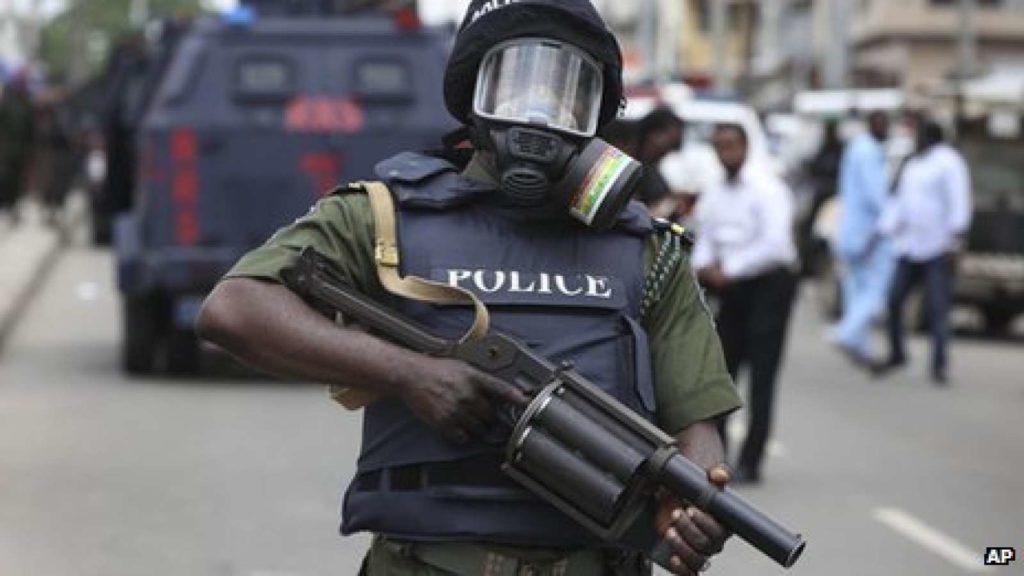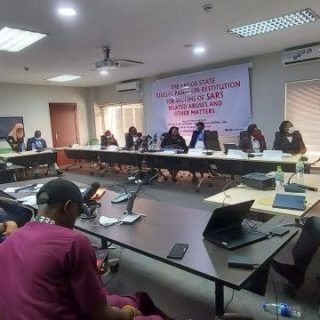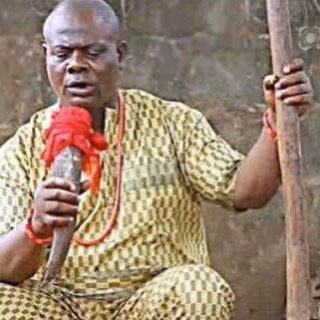Citizen is a column that explains how the government’s policies fucks citizens and how we can unfuck ourselves.
The Nigerian police are always averse to protests. But things took a different turn earlier today when the Lagos State government, through its official Twitter account, stated that the Lagos State police command has vowed to resist any protests in Lagos State, under any guise or “nomenclature”.
As expected, a lot of social media users were angry at the declaration. Many people referred to the constitution as supporting the rights of citizens to protests, and they went on about how the police and the Lagos State government were trying to stifle the rights of displeased Nigerian or protesters.
Curiously, we decided to look at the laws that guide assembly in Nigeria, including if and when the Nigerian police can put an end to protests in Nigeria. Just maybe the police and the Lagos State government were seeing some things we weren’t.
Read: Who Has Powers Over The Nigeria Police Force?
1. Section 40 of the Constition
The most important position of the law for anyone who wants to understand the position of Nigerian laws on protests is Section 39 and 40 of Nigeria’s 1999 constitution.
Section 39 of the constitution guarantees free speech while Section 40 of Nigeria’s 1999 the constitution states that:
Every person shall be entitled to assemble freely and associate with other persons, and in particular, he may form or belong to any political party, trade union or association for the protection of his interests.
This provision states simply that everyone is entitled to assembly freely and associate with other people.
However, Section 45 of the constitution states that any law against section 40 is valid if it is in the interest of defence, public safety, public order, public morality or public health, or in the interest of protecting the freedom of other people.
So, the only thing that can affect the right to hold a peaceful protest is if the government makes a law that restricts movement in the interest of defence, public safety, public order, public morality or public health or in the interest of protecting the freedom of other people.
But the laws on assembly are not finished.
2. Public Order Act of 2004
The “Public Order Act” was enacted in 2004.
Section 1(1) of the act gives a governor of a state the power to direct the conduct of any assembly on a public road or all public places of resort in the state, and prescribe the route any procession may pass.
Section 1 (2) also states that anyone who wants to convene any assembly or meeting or of forming any procession in Nigeria must have a licence to do so.
The person must first make an application for a licence to the governor not less than 48 hours before the assembly, and if the governor is satisfied that the assembly is not likely to cause a breach of the peace, he must direct any superior police officer to issue a licence, not less than 24 hours to the assembly, specifying the name of the licensee and defining the conditions on which the assembly to take place.
If he is not so satisfied, he must convey his refusal in the same manner to the applicant within the time stipulated.
Section 1 (4) of the Act also gives the governor the power to delegate his powers in relation to the whole state or part thereof, to the Commissioner of Police of the State or any superior police officer of a rank not below that of a Chief Superintendent of Police.
This means that a state governor has to give a licence before people can assemble in any state, and he can delegate his powers to the commissioner of police of the state.
But the position of the law is still not over with regards to protests.
3. All Nigeria People’s Party v. Inspector General of Police (2006)
In this case, All Nigeria People’s Party (ANPP) took the IGP to court and challenged the constitutionality of the police permit under the Public Order Act after the police disrupted their rally.
At the Federal High Court, the Judge stated the Public Order Act is a violation of section 39 and 40 of the constitution, and chapter 11 of the African Charter on Human and People’s Right, and the law is a violation of the right of people’s assembly to free speech.
The judge agreed with Mr Falana, the lawyer for ANPP, that Nigeria’s criminal law should be used to prosecute violent protesters, but the rights to assemble cannot be taken away if they protest peacefully.
The judge conclusively stated that “sections 1(2),(3),(4),(5) and (6), of the Public Order Act are inconsistent with the fundamental rights provisions in the 1999 Constitution and to the extent of their inconsistency, they are void. I hereby so declare.”
4. In Conclusion
The Federal High Court has held, through a continuous order, that the Inspector-General of Police, whether by himself, his agents, privies and servants cannot prevent aggrieved citizens of Nigeria from organizing or convening peaceful assemblies, meetings and rallies against unpopular government measures and policies.
The Court of Appeal also held, on the same case, that permits for peaceful demonstrations are things of the past, and that protesting peacefully is part of the fundamental pillars of a democracy.
It is now a settled case that peaceful protests are guaranteed under the Nigerian constitution, and are an important part of Nigeria’s democracy. And they cannot be denied except in a situation where Nigeria or part of the country is in a special emergency like a disaster.
Quiz: What Are You Most Likely To Get Arrested For?
COMPONENT NOT FOUND: donation





